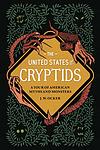The Greatest "New Guinea" Books of All Time
Click to learn how this list is calculated.
This list represents a comprehensive and trusted collection of the greatest books. Developed through a specialized algorithm, it brings together 286 'best of' book lists to form a definitive guide to the world's most acclaimed books. For those interested in how these books are chosen, additional details can be found on the rankings page.
Genres
The "New Guinea" category in books encompasses a diverse range of literature focused on the world's second-largest island, situated in the southwestern Pacific Ocean. This genre includes historical accounts, anthropological studies, travel narratives, and biographies that explore the rich cultural tapestry, complex history, and unique biodiversity of the region. Works in this category often delve into the myriad indigenous societies of New Guinea, examining their languages, customs, and ways of life, as well as the impact of European colonization and the ongoing challenges of modern development. Additionally, environmental and ecological texts within this genre highlight New Guinea's vast rainforests, mountainous terrain, and unparalleled species diversity, offering insights into conservation efforts and the island's significance in the context of global climate change. Whether through the lens of an explorer, a researcher, or a native storyteller, books in the "New Guinea" category provide readers with a multifaceted understanding of this fascinating and complex island.
Countries
Date Range
Reading Statistics
Click the button below to see how many of these books you've read!
Download
If you're interested in downloading this list as a CSV file for use in a spreadsheet application, you can easily do so by clicking the button below. Please note that to ensure a manageable file size and faster download, the CSV will include details for only the first 500 books.
Download-
1. Patterns of Culture by Ruth Benedict
"Patterns of Culture" explores the concept of culture as a collective personality, analyzing the patterns of behavior and thought that define different societies. The author uses examples from diverse cultures such as the Pueblo Indians and the Dobu Islanders to illustrate her point. The book argues that each culture has its own unique pattern and personality, which is shaped by its history, environment, and social structure. The author emphasizes the importance of understanding these patterns in order to fully understand and appreciate the diversity of human cultures.
-
2. Collapse by Jared Diamond
"Collapse" is an exploration of why certain societies throughout history have thrived while others have deteriorated and collapsed. The book delves into environmental problems, climate change, rapid population growth, and unwise political decisions as factors that contribute to the downfall of a civilization. The author uses examples from history such as the Mayans, the Vikings in Greenland, and modern examples like Rwanda and Haiti, to illustrate his points. It serves as both a historical analysis and a warning for modern societies to learn from the past in order to avoid a similar fate.
-
3. Euphoria by Lily King
"Euphoria" is a historical fiction novel set in the 1930s that follows three anthropologists - Nell, Fen, and Andrew - as they navigate the complexities of their personal and professional relationships in the remote jungles of New Guinea. As they study the local tribes and their customs, they become entangled in a love triangle that challenges their beliefs and threatens to unravel their work. The novel explores themes of love, jealousy, cultural differences, and the pursuit of knowledge.
-
4. The World Until Yesterday by Jared Diamond
This book provides a comprehensive examination of traditional societies, drawing on the author's extensive fieldwork and the broader anthropological record to explore what the modern world can learn from people who have lived in small, close-knit communities for thousands of years. It delves into various aspects of traditional life, including conflict resolution, child-rearing practices, treatment of the elderly, and risk management, offering insights into human behavior and social evolution. The work challenges readers to consider the benefits and drawbacks of both traditional and modern societies, suggesting that understanding our past can offer valuable lessons for addressing contemporary issues.
Reading Statistics
Click the button below to see how many of these books you've read!
Download
If you're interested in downloading this list as a CSV file for use in a spreadsheet application, you can easily do so by clicking the button below. Please note that to ensure a manageable file size and faster download, the CSV will include details for only the first 500 books.
Download


